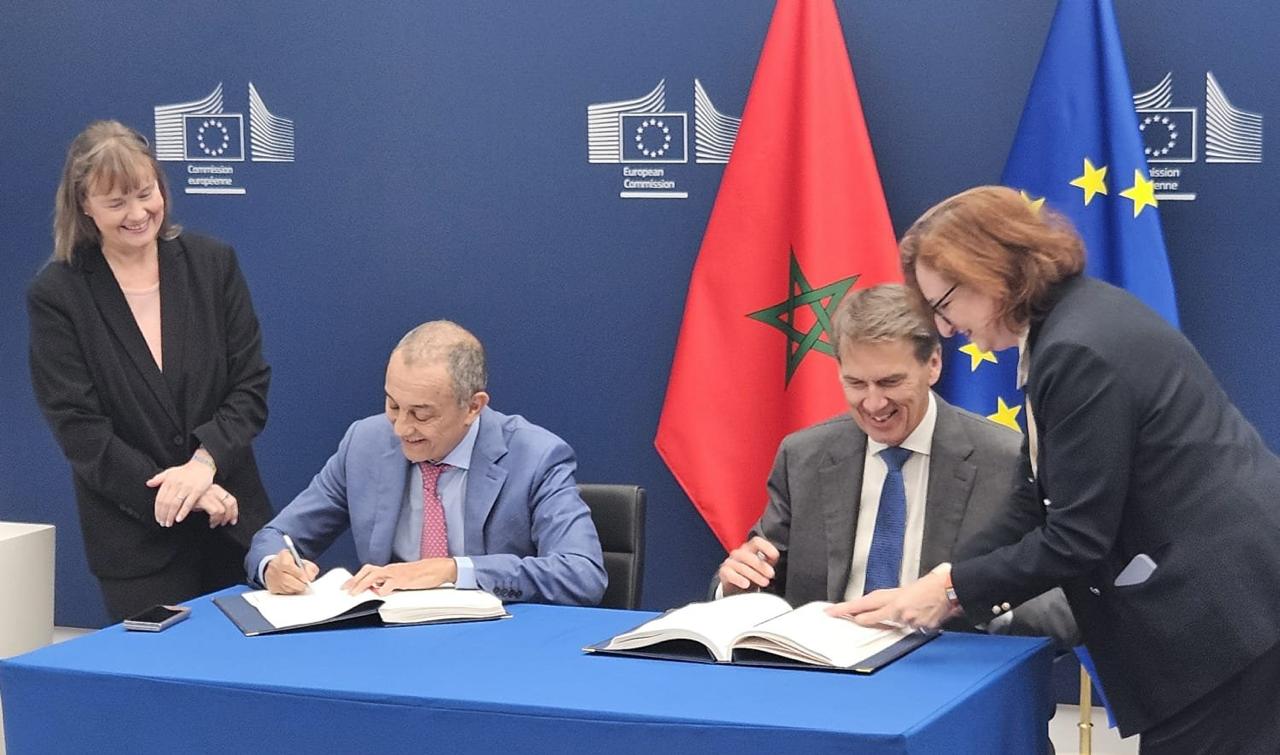Rabat – Morocco’s southern provinces are set to see new economic opportunities following the signing of a modified agricultural agreement with the European Union (EU) on Friday.
Rachid Bennali, President of the Moroccan Confederation of Agriculture and Rural Development (COMDER), has emphasized the potential impact on local development. Speaking earlier today to Morocco’s national broadcaster SNRT News, Bennali said the agreement will enhance existing investments in the southern regions and attract new ones.
It will contribute to economic and social development and is expected to create new jobs in agriculture and related sectors, he added.
Signed at the European Commission headquarters in Brussels, the deal ensures that agricultural products from Morocco’s southern regions in Western Sahara enjoy the same preferential access to European markets as products from the rest of the country.
The agreement also introduces labeling requirements that highlight the origin of products, including “Laayoune-Sakia El Hamra” and “Dakhla-Oued Ed-Dahab.” This is set to strengthen the Moroccan identity of goods from these provinces.
The new deal ‘strengthens an already strong commercial relationship’
Bennali noted that the deal comes alongside efforts by other international partners, including the United States, to encourage investment in the southern regions. This agreement opens new horizons for the agricultural sector, particularly for small and medium producers looking to expand into European markets, he argued.
The amended agreement, which facilitates market access and attracts investment, is expected to further support the southern provinces’ economic growth and employment opportunities, marking a significant step in Morocco’s ongoing development efforts in these regions.
Morocco’s Ministry of Foreign Affairs also welcomed the agreement, saying that it “strengthens an already strong commercial relationship and consolidates a solid and dense partnership, with Morocco being the EU’s main economic partner in Africa and the Arab world.”
The amended agricultural agreement builds on the 2018 exchange of letters between Morocco and the EU and resolves longstanding questions over the application of trade benefits to Morocco’s southern provinces.
In addition to boosting investment, creating jobs, and supporting local producers in the southern provinces, the agreement reinforces Morocco’s position in the Western Sahara debate at a time when international recognition of its sovereignty is gaining momentum.
Several countries, including the United States, France, Portugal, and the United Kingdom, have recognized Morocco’s sovereignty over the region and supported the Moroccan autonomy plan.
